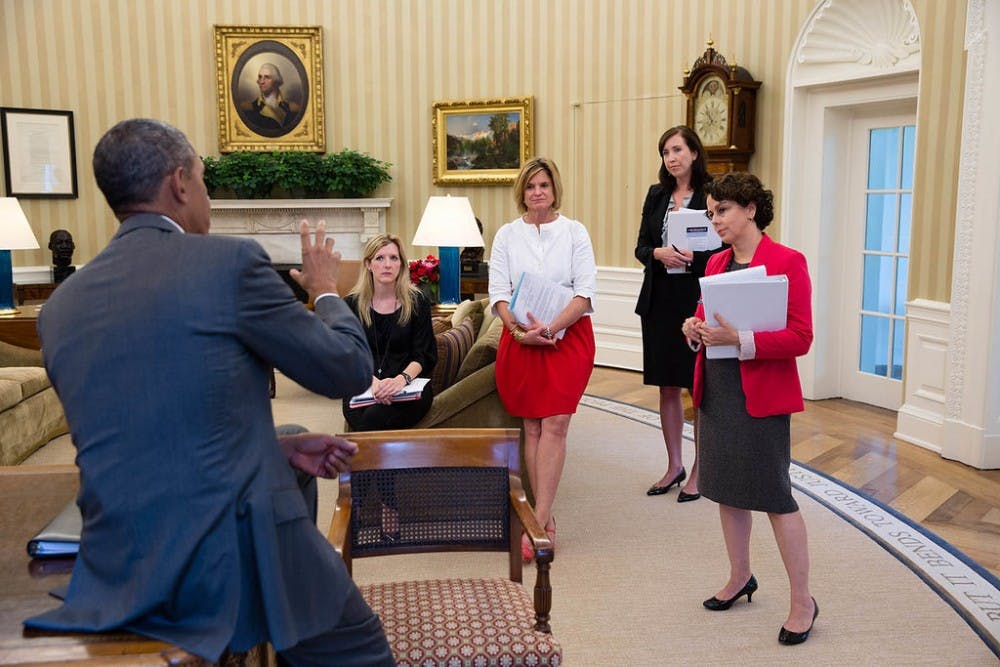Former White House Communications Director Jennifer Palmieri talked about the challenges women face in leadership and her role in Hillary Clinton’s 2016 presidential campaign at Perry World House.
Palmieri spoke about her 2018 book, “Dear Madam President: An Open Letter to the Women Who Will Run the World,” which she said was inspired by her experience working as Director of Communications for Hillary Clinton’s 2016 presidential campaign. Styled as an open letter to the first female president, the book discusses the role of women in professional settings and provides advice to future female leaders. At the May 2 event, Palmieri explained how women in leadership are subject to “deeply enlarged gender biases” and urged them to be unapologetic about their identities despite this.
Palmieri noted that when she worked on the Clinton campaign, she saw many people question whether women could be successful in politics.
“You’ve never seen this before, and you just don’t know what to make of it,” Palmieri said characterized people’s thoughts on female political leaders. “There is something about her [you] just don’t trust.”
Palmieri added that in her book, she provides an optimistic narrative about how women have a future in political leadership and “how each person chooses to engage in the world has an effect.”
Before working on the Clinton campaign, Palmieri served as White House Communications Director during Barack Obama’s presidency. She is now president of the Center for American Progress Action Fund, a nonpartisan, progressive policy institute. Palmieri drew examples from her own professional life to highlight gender biases that women face in the workplace more generally. She said when changing jobs throughout her life, she was always 10 years older than the male counterpart who held her position beforehand.

The event took place in Perry World House.
Palmieri added that society paves the way for men to succeed and does not give women the same opportunities.
RELATED:
Penn professors talk self care and salary negotiation at Women of Color in Academia panel
Women activists stress importance of grassroots movements to combat sexual violence
“It’s been thousand and thousands of years making the professional place a comfortable place for men — it was built for their skills and their talents,” she said. “So of course it works out for them and women are still trying to figure it out.”
Palmieri said, however, that women should be unapologetic about their identities as leaders despite gender biases. She recalled that when taking part in a Harvard Institute of Politics conference debriefing the 2016 presidential election, she became emotional and began to cry. While she said crying at work is often viewed as unprofessional, she urged women to recognize that emotions also have value in the workplace.
“I really liked the part [where] she talked about crying at work being okay,” second-year public health master’s student Quratul-ain Qaiser said. “That’s interesting to me because I also have always thought that it’s super unprofessional to cry at a workplace.”
Qaiser added that although men also cry in professional settings, the media reaction is not the same, and “they are not called hysterical like a lot of women are called in the media.”
“It’s not about crying, it’s about who is doing the crying and how people react to it,” Qaiser said.
First-year chemistry Ph.D. candidate Paris Watson said the talk made her realize the magnitude of the challenges women face in the workplace.
“I think it was the discussion about how women [are] in a man’s world, how we have to fight harder and work harder to get the same way,” Watson said. “I never really thought about how great of an extent the world was shaped for men being in professional situations and leadership and power.”









